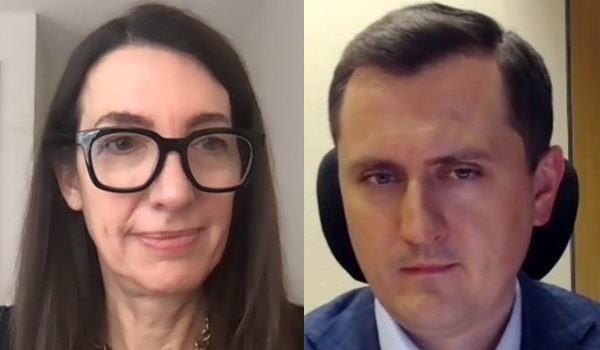 On February 24, the Contemporary Challenges in American & Global Law web series discussed the question, “How Well Did the Post-2008 Financial Crisis Regime Prepare the World for the COVID-19 Pandemic?” Heidi Mandanis Schooner, Professor of Law at Catholic Law, led the afternoon’s discussion, with comments delivered by Michal Bobrzynski (JU-CUA ALP 2005), Partner at Greenberg Traurig in Warsaw, Poland.
On February 24, the Contemporary Challenges in American & Global Law web series discussed the question, “How Well Did the Post-2008 Financial Crisis Regime Prepare the World for the COVID-19 Pandemic?” Heidi Mandanis Schooner, Professor of Law at Catholic Law, led the afternoon’s discussion, with comments delivered by Michal Bobrzynski (JU-CUA ALP 2005), Partner at Greenberg Traurig in Warsaw, Poland.
After opening remarks from program moderator, Professor Emerita Leah Wortham, Director of the American Law Program and the LL.M. Program at Catholic Law, Schooner shared her thoughts on the challenges facing the United States’ financial sector given this historic moment the COVID-19 pandemic has created. Schooner began with an overview of the financial sector, defining it as a diverse portfolio of institutions, including banks, that have trillions of dollars in assets. Schooner used the remainder of her time to answer three questions: Why do we regulate the financial sector? What were the 2008 Financial Crisis reforms? Were banks prepared for a pandemic? Bobrzynski’s comments shed light on where Poland stands at this point in the pandemic and what their financial sector is facing. He emphasized Poland’s heavy reliance on its banking sector (which accounts for half of Poland’s total Gross Domestic Profit) and concern regarding banking profitability. Both Schooner and Bobrzynski shared levels of uncertainty in determining the true amount of loss created by the pandemic, noting that things will continue to develop in the coming months.
Following initial their commentary, Schooner and Bobrzynski answered questions posed by the audience. Their responses addressed topics including why the U.S. has such a complicated regulatory structure, the effects of raising or lowering interest rates, market control regarding Polish banks, and whether the crisis will cause a lasting increased regulatory control. As the program drew to a close, Schooner reiterated an earlier point that crises like the pandemic tend to exacerbate pre-existing systemic problems, particularly for disadvantaged groups, and there is a need for American financial institutions to serve those communities better.
To learn more about upcoming webinars, click here.
You can view a recording of the webinar below.
